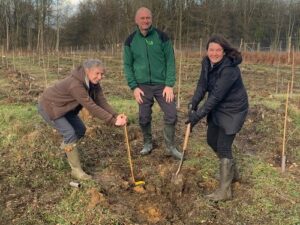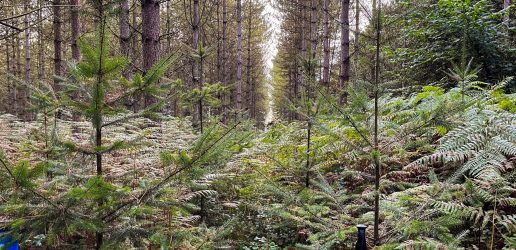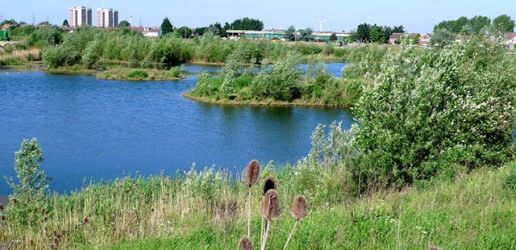The Living Ash Project has been re-awarded funding. The new five-year programme is the second phase of the project which is aiming to secure trees tolerant to the fungal disease ash dieback for future seed production. The work has again been funded by Defra and is partnership between Future Trees Trust, Forest Research, Fera Science (Fera) and Kew.

Earlier this year, project partners completed Phase 1 of the project by planting one of the last trees at an archive site of three thousand trees in Hampshire. The selected trees have displayed some tolerance to ash dieback and have been planted as part of a pioneering project to tackle the disease.
Future Trees Trust will monitor the archive intended to provide the basis for a breeding programme of tolerant ash over time and will enable the development of orchards producing commercially available seed.
Fera Science Ltd are undertaking LC-MS (liquid chromatography mass spectroscopy) work – a type of chemical fingerprinting to ascertain tolerance in the selected trees and Forest Research will undertake a series of controlled inoculations to also ascertain tolerance.
Kew will be researching methods of vegetative propagation to avoid the use of non-tolerant rootstocks when grafting tolerant trees.
Future Trees Trust will also maintain and monitor existing research trials for further tolerant trees.
Recent News
View All news
Underplanting extends range of coniferous tree species to diversify future commercial timber production
New Forest Research published in Forest Ecology and Management shows that underplanting could widen the range of conifers suitable for future UK timber production.

New land regeneration resources for creating green spaces on previously used land now available
The new resources bring together the latest learnings on land regeneration and climate change, and optimal soil thickness for planting on previously used land.

New national survey launched to strengthen plant pest and disease detection across UK horticulture
UK horticulture and landscaping businesses invited to take part in survey to strengthen non-native plant pest and disease detection and reporting.

Underplanting extends range of coniferous tree species to diversify future commercial timber production
New Forest Research published in Forest Ecology and Management shows that underplanting could widen the range of conifers suitable for future UK timber production.

New land regeneration resources for creating green spaces on previously used land now available
The new resources bring together the latest learnings on land regeneration and climate change, and optimal soil thickness for planting on previously used land.

New national survey launched to strengthen plant pest and disease detection across UK horticulture
UK horticulture and landscaping businesses invited to take part in survey to strengthen non-native plant pest and disease detection and reporting.
